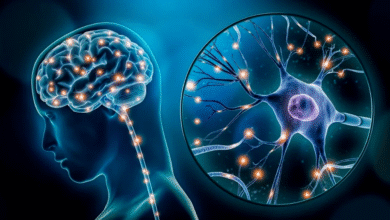
In recent years, there has been a remarkable shift in how cities are conceptualized and developed. With the advent of advanced technology, urban areas are transforming into what are now commonly referred to as Smart Cities. These cities leverage technology and data to improve efficiency, sustainability, and overall quality of life for their residents.
Read More: Must-Attend Top Tech Events in UK 2024
Evolution of Smart Cities
Historical Context
The concept of Smart Cities isn’t entirely new. Urban planners and visionaries have long envisioned cities that utilize technology to enhance governance, infrastructure, and services. However, it wasn’t until the late 20th and early 21st centuries that significant technological advancements made the realization of Smart Cities feasible.
Technological Advances
The evolution of Smart Cities is intricately linked with breakthroughs in various fields, including telecommunications, information technology, and urban planning. Innovations such as the Internet of Things (IoT), cloud computing, and artificial intelligence (AI) have played pivotal roles in shaping the modern urban landscape.
Key Components of Smart Cities
IoT Integration
At the core of Smart Cities is the seamless integration of IoT devices and sensors throughout the urban environment. These devices collect real-time data on various aspects such as traffic patterns, air quality, energy consumption, and more. This data is then analyzed to optimize city operations, improve decision-making, and enhance the overall urban experience.
Sustainable Infrastructure
Smart Cities prioritize sustainability, incorporating eco-friendly practices into their infrastructure and development projects. This includes initiatives such as renewable energy sources, green building designs, efficient waste management systems, and sustainable transportation options. By reducing environmental impact and promoting resource efficiency, Smart Cities aim to create more livable and resilient urban environments.
Data Analytics and Management
Data plays a crucial role in Smart Cities, driving insights and informing decision-making processes. Advanced analytics tools process vast amounts of data generated by IoT devices, enabling city planners and policymakers to identify trends, anticipate needs, and optimize resource allocation. Effective data management ensures that cities can efficiently utilize data to address urban challenges and improve service delivery.
Impact on Urban Living
Improved Efficiency
One of the primary benefits of Smart Cities is improved efficiency across various aspects of urban life. Smart transportation systems reduce traffic congestion and commute times, while intelligent energy grids optimize energy distribution and consumption. Additionally, smart waste management systems minimize waste and increase recycling rates, leading to cleaner and more sustainable cities overall.
Enhanced Quality of Life
By leveraging technology and data, Smart Cities enhance the quality of life for their residents. Access to essential services such as healthcare, education, and public safety is improved through smart systems and digital platforms. Furthermore, initiatives such as smart parks and recreational spaces promote community engagement and social well-being, fostering a sense of belonging and connectivity among residents.
Sustainable Development
Smart Cities are committed to sustainable development practices that minimize environmental impact and promote long-term resilience. By integrating renewable energy sources, implementing green building standards, and encouraging eco-friendly transportation options, these cities strive to reduce carbon emissions and mitigate the effects of climate change. Sustainable urban planning ensures that cities can thrive economically while preserving natural resources for future generations.
Challenges and Concerns
Privacy and Security Issues
The widespread deployment of IoT devices and data collection systems in Smart Cities raises concerns about privacy and cybersecurity. Safeguarding sensitive information and protecting against cyber threats is essential to maintaining public trust and confidence in Smart City initiatives. Strong data protection measures and transparent governance frameworks are necessary to address these concerns effectively.
Digital Divide
While technology holds great promise for improving urban living, there is a risk of exacerbating existing inequalities. The digital divide refers to the gap between those who have access to technology and digital resources and those who do not. Bridging this divide requires equitable access to technology infrastructure, digital literacy programs, and affordable internet access for all residents.
Environmental Impact
Despite their focus on sustainability, Smart Cities face challenges related to environmental degradation and resource depletion. Rapid urbanization and population growth place strain on natural resources and ecosystems, leading to issues such as air and water pollution, habitat destruction, and loss of biodiversity. Balancing economic development with environmental conservation remains a complex challenge for Smart Cities worldwide.
Future Prospects
Advancements in Technology
The future of Smart Cities is characterized by continued advancements in technology and innovation. Emerging technologies such as artificial intelligence, blockchain, and 5G connectivity hold the potential to further revolutionize urban living. These technologies will enable cities to become even smarter, more connected, and more efficient in the years to come.
Potential Innovations
Exciting innovations are on the horizon for Smart Cities, offering new possibilities for urban development and governance. From autonomous vehicles and drone delivery systems to vertical farming and renewable energy solutions, the innovation potential is vast. Smart Cities will continue to experiment with new technologies and approaches to address urban challenges and improve the quality of life for residents.
Case Studies
Examples of Successful Smart Cities
Several cities around the world serve as inspiring examples of successful Smart City initiatives. Singapore, for instance, is renowned for its efficient public transportation system, smart traffic management, and innovative urban planning strategies. Barcelona is another standout example, with its use of IoT technology to improve waste management, energy efficiency, and citizen engagement. Amsterdam is celebrated for its commitment to sustainability, with initiatives such as smart mobility, renewable energy, and green infrastructure.
Read More: Space Exploration Updates: Discovering the Secrets of the Universe








2 Comments